Toyota to Manufacture Lexus Cars in China
![]() 12/25 2024
12/25 2024
![]() 525
525
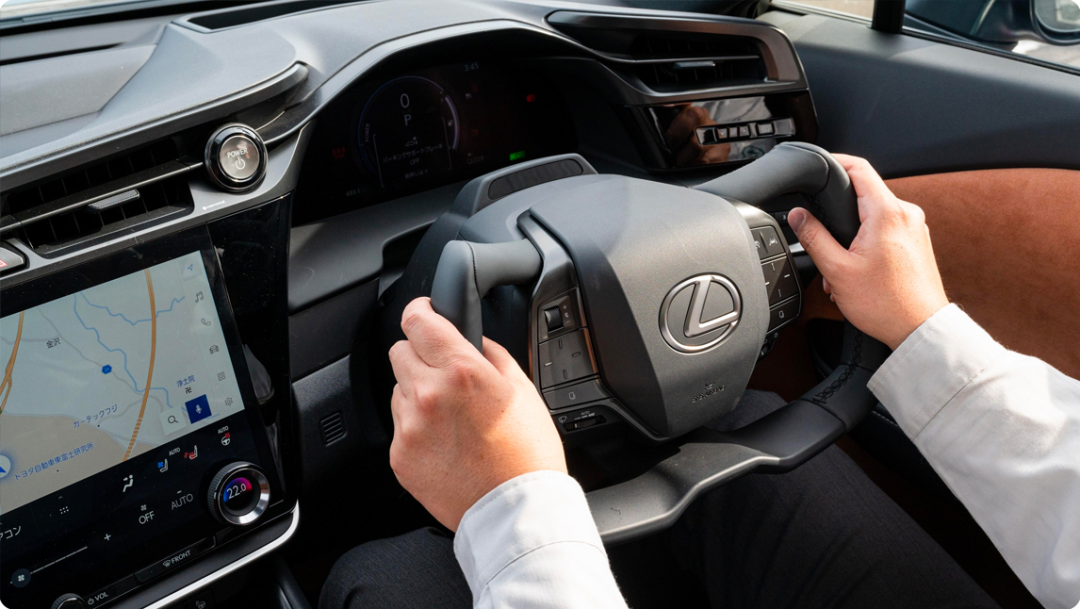
Following Tesla's lead in establishing a wholly-owned factory, a 'Made in China' Lexus may soon become a reality, albeit not in the form of a gasoline-powered vehicle.
Author | Wang Lei
Editor | Qin Zhangyong
According to a report by Japanese media outlet Nikkei, Toyota Motor Corporation has decided to construct a new factory in China, with the construction site already identified. This factory will primarily manufacture electric vehicle models for its luxury brand, Lexus.
Unlike previous joint ventures, Toyota's new factory in China will be a 100% wholly-owned foreign enterprise, mirroring Tesla's Shanghai factory.
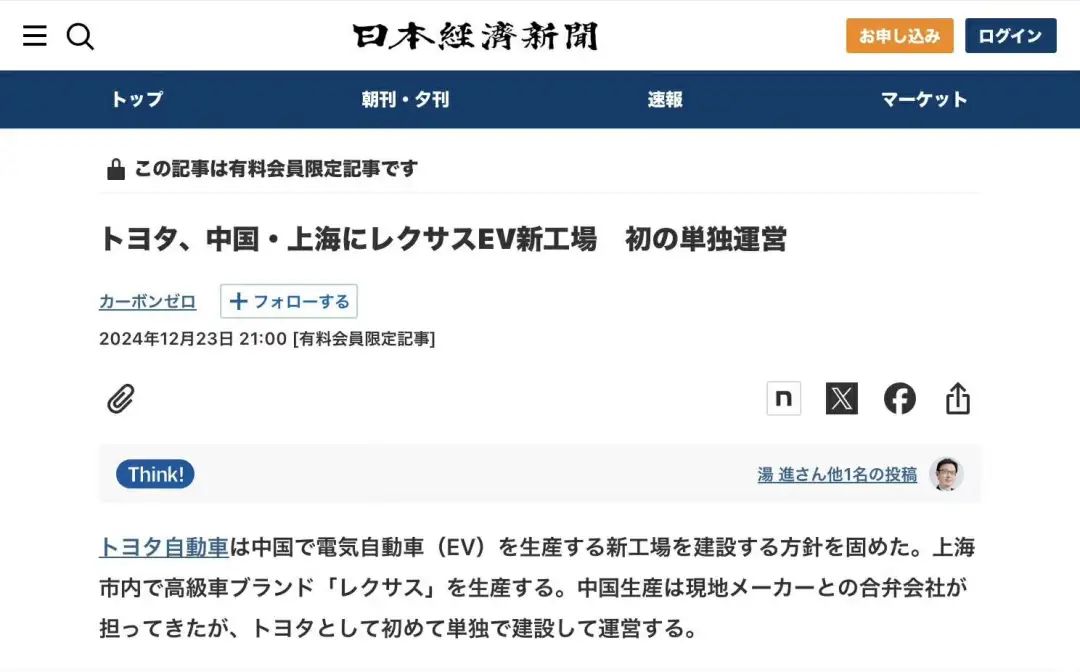
Toyota has yet to comment on the matter, while Lexus China stated, 'This is not an official announcement, and we have no comment.'
As early as June, rumors circulated that Toyota was in talks with relevant authorities to invest in and construct a 100% wholly-owned Lexus factory in Shanghai, similar to Tesla's Chinese factory.
Insiders revealed that Toyota aims to secure benefits akin to those enjoyed by Tesla in China, including tax incentives, policy support, land use rights, and the absence of a local joint venture partner. Toyota seeks to replicate all the preferential conditions Tesla enjoys for its wholly-owned factory in China. However, at that time, negotiations were still ongoing and subject to change.
The latest news further solidifies the likelihood of the factory's construction. According to Nikkei, Toyota has pinpointed the construction site within Shanghai, and the factory is anticipated to become operational around 2027. The exact construction timeline and location have not been disclosed.
The factory will exclusively produce electric Lexus vehicles, which will bear Chinese logos on the rear. It plans to utilize over 95% locally sourced components in China. The newly manufactured vehicles will be sold in the Chinese market and simultaneously exported to Japan and other international markets.
If successfully established, Toyota will become the first Japanese automaker to construct a standalone factory in China and the second foreign enterprise after Tesla to establish a wholly-owned factory in Shanghai.
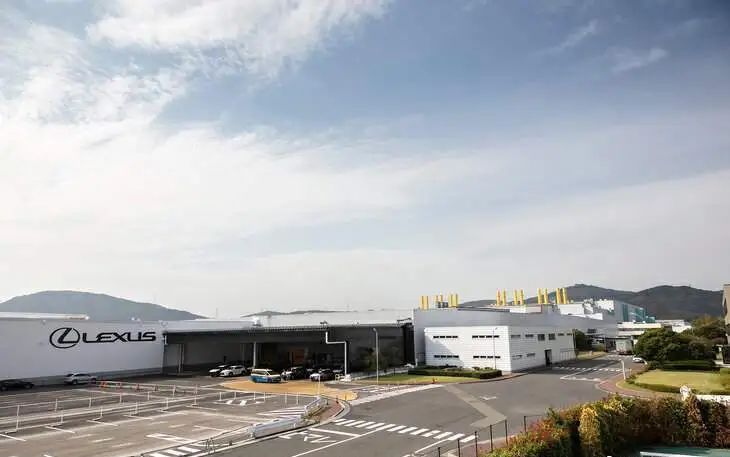
Lexus plays a pivotal role in Toyota Motor Corporation's electrification journey.
Under the 'EV-first' strategy implemented by Toyota's CEO Koji Sato since taking office, Toyota aims to launch ten pure electric vehicles by 2026, targeting annual sales of 1.5 million units. By 2030, pure electric vehicle sales are projected to reach 3.5 million units, with Lexus positioned as the 'pioneer of electrification'.
Toyota's plan envisions Lexus eventually transforming into a pure electric brand. Starting in 2026, Toyota will utilize a dedicated electric vehicle manufacturing platform to develop new electric models for Lexus, adaptable to various models.
It is estimated that by 2030, all Lexus models will offer pure electric versions, achieving 100% pure electric sales in China, North America, and Europe, with a global sales target of 1 million units. By 2035, the brand will be fully transformed into a pure electric brand.
Moreover, in terms of sales, Lexus has shown resilience within Toyota's Chinese operations. Despite both experiencing declining performance in China, Toyota's situation is significantly better compared to other Japanese automakers. In 2023, Toyota's overall sales in China only declined by 2%, while Lexus sales increased by 3% against the trend.
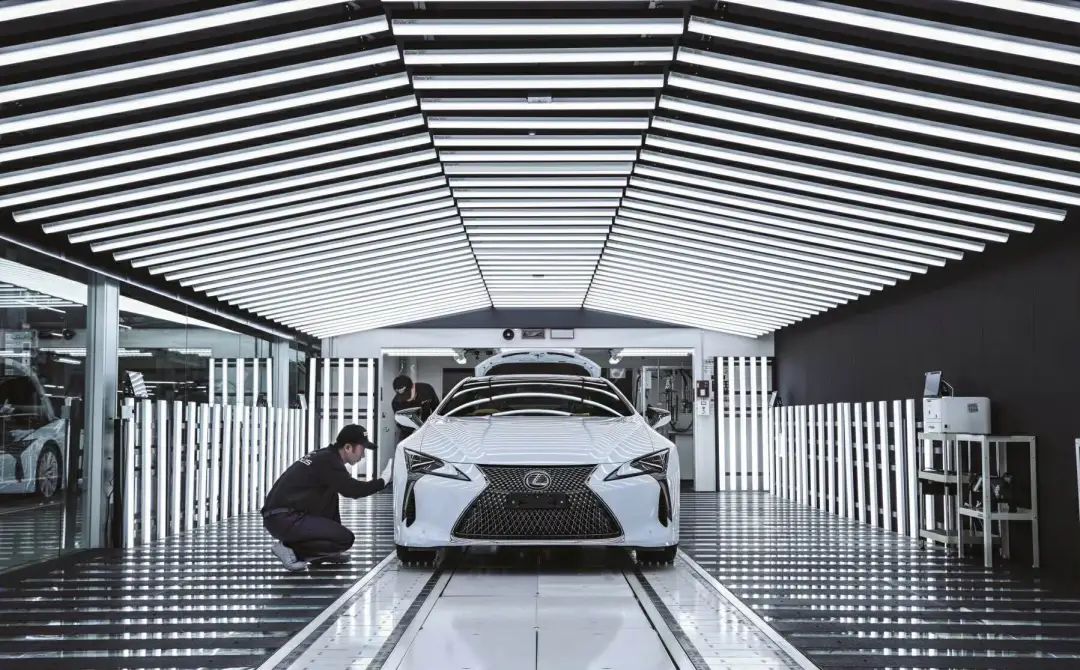
From January to October this year, the cumulative number of imported cars in China was only 580,000, a year-on-year decrease of 9%. However, amidst this challenging scenario, Lexus stood out with sales of 149,000 units, representing a year-on-year increase of 7% and securing the top spot in imported car sales.
Koji Sato also stated, 'The Chinese market will play a pivotal role in the electrification transformation of Lexus.'
Lexus is well-prepared in terms of models. At this year's Beijing Auto Show, Lexus showcased two new concept cars, the LF-ZC and LF-ZL, both serving as blueprints for upcoming electric models.
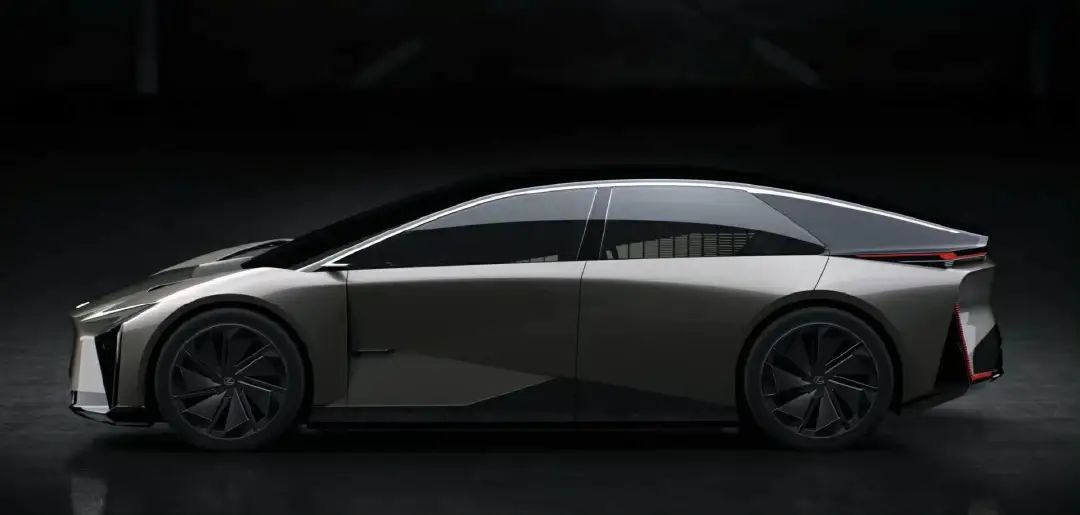
Recently, Toyota applied for a patent for a new SUV model at the National Intellectual Property Administration. This model is the production version of the previously unveiled Lexus LF-ZL pure electric concept car. Positioned as a flagship model, its dimensions are comparable to the AITO M9, measuring 5300×2020×1700 mm. Except for being slightly shorter in height, it surpasses the AITO M9 in all other dimensions.
Featuring a modular body structure and equipped with the latest Prismatic battery, it boasts a claimed range of 965 kilometers. It is also equipped with a 12.8-inch central control screen and an AI system that can automatically learn driving habits. This production model is expected to be released after 2026, aligning with the timeline for production following Toyota's factory construction in China.
It is not surprising that Toyota wishes to emulate the 'Tesla model' to accelerate its electrification process. Since its inception in 2019, Tesla's Shanghai factory has achieved remarkable success. In the first three quarters of 2024, Tesla's Shanghai factory delivered 676,000 vehicles, accounting for more than half of Tesla's global deliveries during the same period.
Tesla's Shanghai factory has significantly contributed to its current success, and Toyota clearly aims to leverage China's supply chain advantages to rapidly advance its electric vehicle business. In other words, while Toyota's wholly-owned electric vehicle factory in Shanghai may not have immediate economic significance in the short term, it represents an essential long-term strategy.
Nowadays, Volkswagen and Audi have already leveraged China's R&D capabilities to develop cooperative models. For Toyota to catch up on electrification, the Chinese market is undoubtedly the best teacher.








